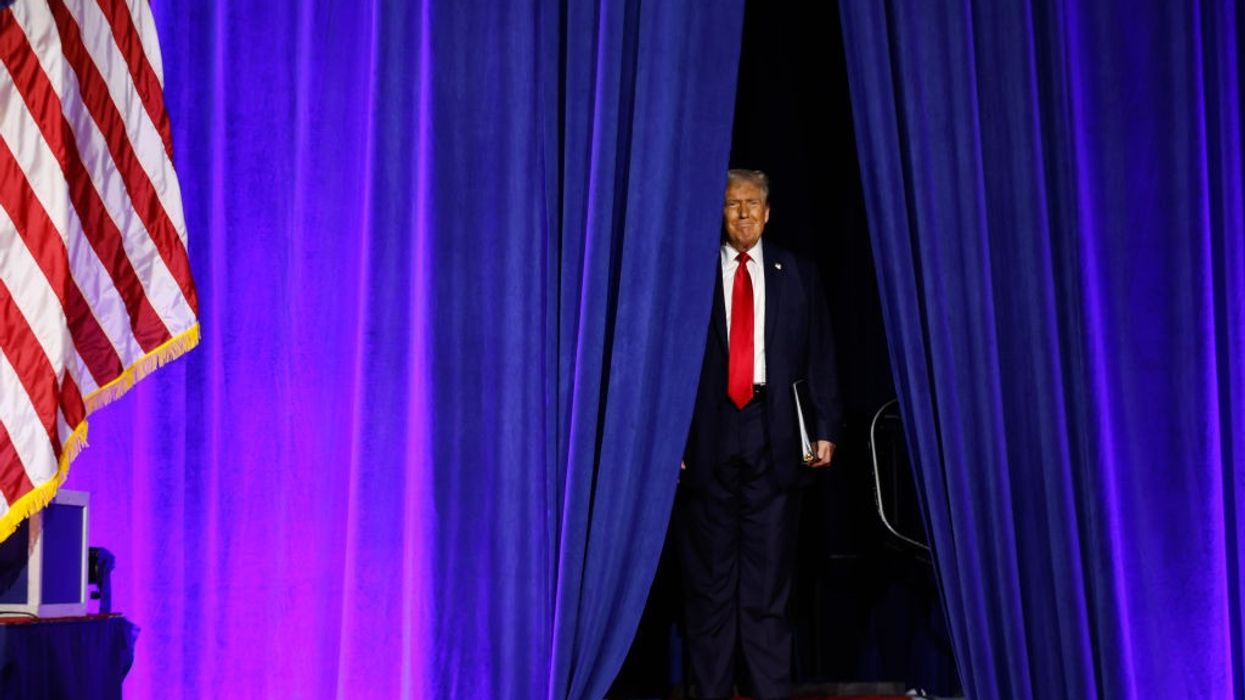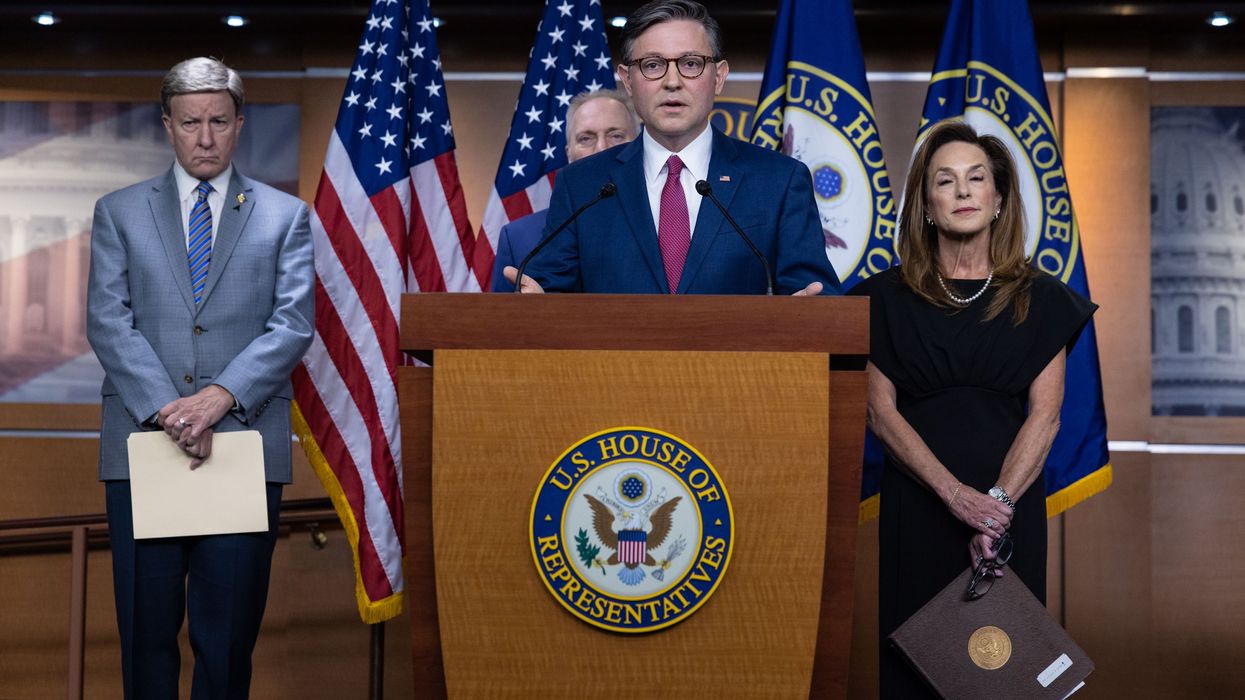When Will the Contented Class Revolt Against Trump?
When will these contented ones collectively start saying, “Enough is enough” and it’s time to say to Donald Trump, “You’re Fired”?
The reason the famous and prolific Harvard economist, John Kenneth Galbraith, is often referred to as a political economist can be seen in the continuing relevance of his book The Culture of Contentment (1992). His thesis explains in significant part why President Donald Trump’s wrecking of America has not more significantly collapsed his support, now below 39% approval.
In the US, the contented classes hail from both parties. They are not a majority of the population by any means, given that half of all Americans are “poor” or “near poor.” They are a majority of the politically and economically influential people who support policies that maintain their comfort at the expense of the necessities of the “functional underclass” left behind in poverty. The contented classes include the super rich, of course, but also the managerial, professional, and wealthier working classes. In addition, they vote at a higher percentage than the poor.
Before Trump, this contented class, which includes members of Congress, was doing well, so much so that they stood in the way of increasing the federal minimum wage, frozen at $7.25 per hour, or increasing Social Security benefits, frozen for over 40 years. These changes could have been paid for by hiking Social Security taxes on, you guessed it, the contented classes. Despite public opinion polls favoring expanding the social safety net, the contented class wants the status quo of no paid sick leave, no paid family or maternal leave, no subsidized childcare, and no universal paid vacations. Western European countries all have a more robust social safety net than the US.
When you crank in the damage done by Trump and his Trumpsters in Washington, DC, members of the contented classes are largely unaffected. The costs of universally damaging programs cutting preparedness for climate violence, pandemics, huge expansions in the police state against immigrants, and the military-industrial complex are not felt where the contented classes live, work, and raise their families.
Trump’s tyrannies and treacheries; his open flouting of the laws (the establishment likes such flouting to be discreet); and his revolting, foul-mouthed defamations tower over Richard Nixon’s transgressions.
We can make a list of the terrible closedowns or strip-mining of federal agencies’ law enforcement and regulatory initiatives. Very few exclusively impact the contented classes. Some may actually benefit.
Other Trump moves, many of them illegal and unauthorized by Congress, delight these people. They support lower taxes on upper-income people and businesses, large or small. The Internal Revenue Service is now going further with its unauthorized dilutions of the 15% minimum tax on corporate profits. The rising stock market adds to the complacency of the contented classes.
The most cruel and vicious actions by Trump—abolishing the US Agency for International Development, medical, water, food assistance to desperate millions abroad—cuts to Meals on Wheels, Head Start, Medicaid, Supplemental Nutrition Assistance Program (SNAP) impact the masses—tens of millions of them directly and daily. They do not reach the contented class members of our population.
This is not to say that millions of these contented persons do not care what is happening to their fellow citizens. But normative caring is not viscerally feeling the pain and suffering, the anxiety, dread, and fear of losing healthcare coverage; tomorrow’s meal; the brunt of chronic indebtedness; or abandoning the disabled, the sick, and the casualties of the workplace.
Galbraith wrote that living in their contented culture leads to short-term thinking, underinvestment in public goods, and ignoring the widening inequality between the “haves” and the “have-nots.” Inequality also stems from making money from money—a source of wealth denied to people living paycheck to paycheck.
The capture of the Democratic Party by this complacent class has become so pronounced that the blue-collar working-class members have broken away from their unions and parents or grandparents’ devotion to the FDR-like New Deal politics and fallen prey to the rhetorical seduction of the corporatist GOP.
What could Trump do to alienate large portions of this contented class, which Galbraith argues has been the only force that can disrupt the status quo? When will these contented ones collectively start saying, “Enough is enough” and it’s time to say to Donald Trump, “You’re Fired”?
When the following come together—serious recession, serious inflation, with destabilizing (to their businesses) tariff-driven surging prices; a reckless foreign war quagmire; plunging stock markets; daily spreading chaos; and the media-exposed sickening stench of raw corruption flowing from the White House throughout the upper realms of the executive branch—the contented classes should join the resistance to the Trump madness.
Back in 1974, the Republican establishment decided it was time for Richard Nixon to go, despite his having won reelection in 49 of 50 states in 1972, with a 60% approval in the polls. He was not considered “useful” to the power brokers anymore.
Trump’s tyrannies and treacheries; his open flouting of the laws (the establishment likes such flouting to be discreet); and his revolting, foul-mouthed defamations tower over Richard Nixon’s transgressions.
History instructs that latent revulsions and fears by the power elites are often launched onto the public stage by some specific outrage, decadence, or bullying. Stay tuned. With Dictator Donald (he regularly intones, “This is only the beginning”), THE WORST IS YET TO COME.


